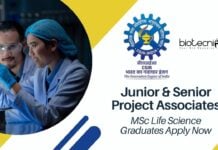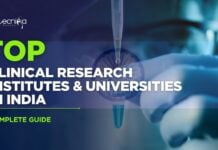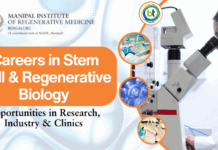Are you looking to excel in the field of microbiology and secure a promising career? The microbiology job market is evolving rapidly, with new opportunities emerging in various sectors, including healthcare, pharmaceuticals, food safety, environmental sciences, and research. To stand out from the competition and make a significant impact in this dynamic industry, it’s essential to possess a diverse set of skills that align with the demands of the job market. In this article, we will explore the top skills you must have to dominate the microbiology job market and enhance your career prospects.
Introduction
Microbiology is the branch of science that deals with the study of microorganisms, including bacteria, viruses, fungi, and parasites. It plays a crucial role in numerous industries, ranging from healthcare to biotechnology. As advancements in technology and scientific research continue to unfold, the demand for skilled microbiologists is on the rise. Therefore, it’s vital for aspiring microbiology professionals to equip themselves with the necessary skills to thrive in this competitive job market.
Read More: Career Options After MSc Microbiology, Job Prospects & Scope
The Growing Demand for Microbiology Professionals
The field of microbiology is expanding rapidly, driven by the need for experts who can tackle
global health challenges, conduct groundbreaking research, and ensure the safety of various products and environments. The COVID-19 pandemic, for instance, has highlighted the importance of microbiologists in combating infectious diseases and developing effective diagnostic tools and treatments. As a result, there has been a significant increase in job opportunities for microbiology graduates and professionals.Essential Skills for Microbiology Jobs
To excel in the microbiology job market, it’s crucial to possess a strong foundation of skills that are highly valued by employers. Let’s explore some of the essential skills for microbiology professionals.
Strong Knowledge of Microorganisms and Their Characteristics
A fundamental requirement for any microbiology professional is a comprehensive understanding of microorganisms and their characteristics. This includes a deep knowledge of bacteria, viruses, fungi, and parasites, their taxonomy, structure, physiology, and pathogenicity. A microbiologist must be able to identify different microorganisms accurately and understand their implications in various contexts.
Understanding Bacteria, Viruses, Fungi, and Parasites
Microbiologists should have a thorough understanding of the different types of microorganisms. They should be familiar with the classification and characteristics of bacteria, such as Gram-positive and Gram-negative bacteria, as well as their growth requirements and metabolic pathways. Additionally, knowledge of viruses, their replication cycles, and the diseases they cause is essential. Understanding the characteristics of fungi and parasites is equally important in areas such as medical mycology and parasitology.
Check here and get certified: Bacteriology Certification Course
Familiarity with Microbial Growth and Control
Microbial growth and control play a crucial role in various industries, including food safety, pharmaceutical manufacturing, and environmental monitoring. Microbiology professionals should possess in-depth knowledge of microbial growth requirements, factors influencing growth, and methods to control microbial proliferation. This includes familiarity with aseptic techniques, sterilization methods, and the proper use of antimicrobial agents.
Proficiency in Laboratory Techniques and Instrumentation
Laboratory skills are at the core of microbiology practice. A microbiologist should be proficient in a wide range of laboratory techniques and instrumentation to conduct experiments, analyze samples, and generate reliable results.
Aseptic Techniques and Sterilization Methods
Maintaining a sterile environment is vital in microbiology laboratories to prevent contamination and ensure accurate results. Microbiology professionals should have expertise in aseptic techniques, which involve proper handwashing, wearing personal protective equipment (PPE), and working in a laminar flow hood. Knowledge of different sterilization methods, such as autoclaving, filtration, and chemical disinfection, is essential to maintain the purity of cultures and reagents.
Microscopic Analysis and Staining Techniques
Microscopy is an essential tool for studying microorganisms. Microbiology professionals should be skilled in the preparation and analysis of samples using light microscopy, electron microscopy, and fluorescence microscopy. Additionally, knowledge of staining techniques, such as Gram staining, acid-fast staining, and fluorescent dyes, enables the visualization and identification of microorganisms under the microscope.
Molecular Biology and Genetic Techniques
Advances in molecular biology and genetic techniques have revolutionized the field of microbiology. Proficiency in these techniques is highly valued in the job market, as they allow for in-depth analysis of microbial genomes, identification of virulence factors, and the development of novel diagnostic methods and therapeutics.
DNA Extraction and Amplification
Microbiology professionals should be well-versed in DNA extraction methods, such as phenol-chloroform extraction, column-based purification, and commercial kits. Additionally, understanding the principles and applications of polymerase chain reaction (PCR) is crucial for amplifying specific DNA sequences and detecting pathogens or genetic markers.
PCR and DNA Sequencing
Polymerase chain reaction (PCR) is a cornerstone technique in molecular biology. Microbiology professionals should have hands-on experience in designing PCR assays, optimizing reaction conditions, and analyzing PCR products. Furthermore, knowledge of DNA sequencing methods, including Sanger sequencing and next-generation sequencing (NGS), enables the characterization of microbial genomes and the identification of genetic variations.
Data Analysis and Interpretation
In the era of big data, the ability to analyze and interpret complex biological data is paramount. Microbiology professionals should be proficient in various data analysis techniques and statistical methods to extract meaningful insights from experimental results.
Statistical Analysis and Experimental Design
A solid foundation in statistical analysis is crucial for drawing valid conclusions from experimental data. Microbiology professionals should be skilled in statistical techniques such as hypothesis testing, regression analysis, and analysis of variance (ANOVA). Additionally, expertise in experimental design ensures the robustness of scientific studies and maximizes the reliability of results.
Bioinformatics and Genomic Data Analysis
Bioinformatics plays a pivotal role in modern microbiology research. Proficiency in bioinformatics tools and databases allows for the analysis of genomic and metagenomic data, identification of genes and functional elements, and comparison of microbial communities. Microbiology professionals should be able to navigate bioinformatics resources and interpret the results obtained from various computational analyses.
Additional Skills for Microbiology Professionals
In addition to the core technical skills mentioned above, several complementary skills are highly advantageous for microbiology professionals. These skills contribute to effective communication, problem-solving, and continuous professional development.
Communication and Collaboration Skills
Microbiology professionals often work in multidisciplinary teams and interact with colleagues, supervisors, and stakeholders. Strong communication skills are crucial for conveying research findings, collaborating on projects, and presenting information to diverse audiences. The ability to explain complex concepts in a clear and concise manner fosters effective communication and ensures smooth collaboration.
Research and Problem-Solving Abilities
Microbiology is a field driven by scientific inquiry and problem-solving. Microbiology professionals should possess strong research skills, including the ability to design experiments, collect and analyze data, and draw conclusions. Critical thinking and problem-solving abilities are essential for troubleshooting experiments, identifying research gaps, and proposing innovative solutions.
Knowledge of Regulatory and Quality Assurance Practices
Microbiology professionals working in industries such as healthcare, pharmaceuticals, and food safety must adhere to strict regulatory standards and quality assurance practices. Familiarity with relevant regulations, such as Good Laboratory Practices (GLP) and Good Manufacturing Practices (GMP), is crucial to ensure compliance and maintain the highest quality standards in research and product development.
Continuous Learning and Adaptability
The field of microbiology is constantly evolving, with new discoveries and technologies emerging at a rapid pace. Microbiology professionals should have a passion for learning and be adaptable to embrace new techniques, methodologies, and research paradigms. Actively seeking opportunities for professional development, such as attending workshops, conferences, and webinars, helps microbiologists stay abreast of the latest advancements in the field.
How to Develop and Enhance Microbiology Skills?
Acquiring and enhancing microbiology skills requires a proactive approach to professional development. Here are some strategies to develop and strengthen your skills in the field:
Pursue a Relevant Degree or Certification Program
A strong educational foundation is essential for building a career in microbiology. Consider pursuing a bachelor’s or master’s degree in microbiology or a related field. These programs provide a comprehensive curriculum that covers core concepts and laboratory techniques. Alternatively, specialized certification programs can offer targeted training in specific areas of microbiology, such as clinical microbiology or industrial microbiology.
Check here and get certified: Bacteriology Certification Course
Gain Hands-on Experience through Internships or Research Projects
Practical experience is invaluable in the field of microbiology. Seek opportunities to work as an intern or research assistant in laboratories, hospitals, or industrial settings. These experiences allow you to apply theoretical knowledge, develop practical skills, and learn from experienced professionals. Engaging in research projects or independent studies further enhances your problem-solving abilities and hones your analytical thinking.
Attend Workshops, Conferences, and Webinars
Professional development events offer valuable networking opportunities and access to the latest research and technological advancements. Attend workshops, conferences, and webinars in your area of interest to stay updated on the cutting-edge developments in microbiology. These events provide a platform to interact with experts, share knowledge, and expand your professional network.
Don’t miss out on the amazing workshops at Biotecnika
Join Professional Organizations and Networking Events
Joining professional organizations, such as the American Society for Microbiology (ASM), provides access to resources, publications, and career opportunities. Participate in local chapter events, seminars, and networking events to connect with peers and experts in the field. Engaging in discussions, sharing experiences, and seeking mentorship from seasoned professionals can greatly contribute to your professional growth.
Engage in Continuous Learning and Skill Development
Microbiology is a field that requires continuous learning and skill development. Stay updated with scientific literature, journals, and online resources to keep pace with advancements in microbiology. Online platforms, such as MOOCs (Massive Open Online Courses), offer a wide range of courses in microbiology and related disciplines. Invest time in self-study, explore new techniques, and seek opportunities for skill enhancement.
FAQs
- Q: What are the top skills required for a career in microbiology?
- A: The top skills for a career in microbiology include strong knowledge of microorganisms, proficiency in laboratory techniques, molecular biology and genetic techniques, data analysis and interpretation, communication and collaboration skills, research and problem-solving abilities, knowledge of regulatory and quality assurance practices, and continuous learning and adaptability.
- Q: Why is it important to have a strong knowledge of microorganisms in microbiology?
- A: Microorganisms are the primary focus of study in microbiology. Having a strong knowledge of microorganisms, including bacteria, viruses, fungi, and parasites, allows microbiologists to understand their characteristics, behavior, and implications in various contexts such as health, industry, and the environment.
- Q: How can I enhance my essential microbiology skills?
- A: You can enhance your essential microbiology skills by pursuing a relevant degree or certification program, gaining hands-on experience through internships or research projects, attending workshops, conferences, and webinars, joining professional organizations and networking events, and engaging in continuous learning and essential microbiology skills development.
- Q: What are some popular professional organizations for microbiologists?
- A: Some popular professional organizations for microbiologists include the American Society for Microbiology (ASM), International Society for Microbial Ecology (ISME), Society for Applied Microbiology (SfAM), and American Society for Clinical Laboratory Science (ASCLS), among others.
- Q: How can I stay updated with the latest developments in microbiology?
- A: You can stay updated with the latest developments in microbiology by regularly reading scientific literature, journals, and online resources. Additionally, attending conferences, workshops, and webinars in your field of interest and participating in professional organizations can provide access to the latest research and technological advancements.
Conclusion
To thrive in the microbiology job market, it is crucial to possess a diverse set of essential microbiology skills that align with industry demands. Strong knowledge of microorganisms, proficiency in laboratory techniques and molecular biology, data analysis and interpretation skills, and additional attributes like effective communication and problem-solving abilities are essential for success in this field. By continuously developing and enhancing your microbiology skills, pursuing relevant educational programs, and actively engaging in professional development opportunities, you can position yourself as a competitive candidate and excel in your microbiology career.









































